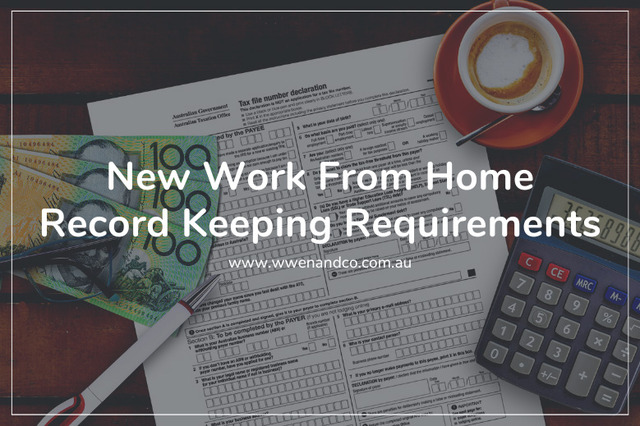Record keeping for work from home is now stricter

Are you one of the five million Australians who claim work-from-home deductions? If so, stricter record-keeping rules may now apply.
Understanding record-keeping requirements for remote work arrangements
For this financial year and moving forward, there are now only two methods to calculate your work-from-home claim:
- Revised fixed rate method (with new rules applying)
- Actual costs method (unchanged).
Actual costs method
The actual costs method has never been all that popular because you need to keep records of every expense incurred and depreciating asset purchased, as well as evidence to show the work-related use of the costs and depreciating assets.
By way of example, to claim electricity expenses, the ATO suggests that you need to find out the cost per unit of power used, the average amount of units used per hour (power consumption per kilowatt hour for each appliance) and the number of hours the appliance was used for work-related purposes.
Fixed-rate method
For this reason, the fixed rate method has been preferred (or, in recent years, the COVID shortcut method where you could claim 80 cents for each hour worked from home. Note, however, that the COVID method is no longer available).
The fixed-rate method has now been revised. The revised fixed-rate method increases your claim from 52 cents to 67 cents per hour.
However, this rate now includes internet, phone, stationery and computer consumables. Therefore, you can’t claim these expenses separately in addition to your home office fixed-rate deduction.
Cleaning expenses and depreciation on office furniture are no longer included in the fixed rate. Therefore, you can now claim these expenses separately.
The record-keeping requirements under the revised fixed-rate method are now more demanding. Also, you now need to keep a record of actual hours worked from home. The ATO will accept a record in any form, but it suggests either: timesheets, rosters, logs of time spent accessing systems, time-tracking apps, or a diary. The ATO will no longer accept estimates or a four-week representative diary.
The implementation date for record-keeping requirement for work-from-home arrangement
This new, strict record-keeping requirement applies from 1 March 2023. The ATO will accept a four-week representative diary for the period before it (1 July 2022 to 28 February 2023).
Further, under the revised fixed rate method, you will now also need to provide at least one document for each type of expense to demonstrate that you actually incurred that expense.
For example, if you receive electricity bills quarterly, you must keep one of those as a record to represent that year’s electricity expenses.

